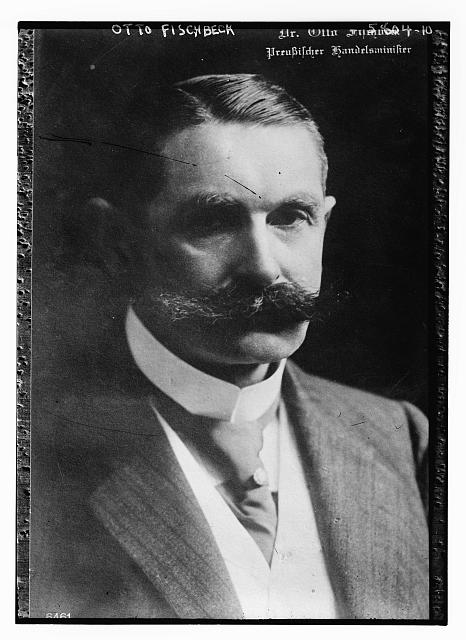NATIONAL LIBERAL FIGURES IN HISTORY
Otto Fischbeck (1865-1939)
Was a German politician between the turn of the 19th century until 1930. He was an MP first for the Liberal People’s Party before it amalgamated with a number of left-leaning Liberal Parties (in comparison to the, by that time, right-leaning National Liberal Party) as the Progressive People’s Party. Thereafter he was its’ Parliamentary leader for two years and Lower Silesian Chairman until its’ dissolution after the First World War.
an MP first for the Liberal People’s Party before it amalgamated with a number of left-leaning Liberal Parties (in comparison to the, by that time, right-leaning National Liberal Party) as the Progressive People’s Party. Thereafter he was its’ Parliamentary leader for two years and Lower Silesian Chairman until its’ dissolution after the First World War.
In 1918 he was instrumental in calling for a union of all liberal forces in Germany including Gustav Stresseman of the NLP (Unfortunately while the more left-wing elements accepted ex-members of the NLP their objection to Stresemann’s support for the annexation of territory if German won the war (even though Fischbeck had too!) blocked his membership. Thus Stresemann went onto form a rival German People’s Party which, although ultimately more right-wing, under his leadership was a pragmatic ‘National Liberal’ force i.e. democratic reform at home whilst fighting against an iniquitous Versailles Treaty abroad).
Fischbeck kept with the newly formed German Democratic Party (DDP), becoming a Regional MP and sometime Minister in Prussia and finally an MP in the National Parliament before the party merged in 1930 (into the German State Party) in an unsuccessful attempt to arrest its’ decline.
Unlike the majority of his DDP colleagues he still regarded himself as nationalist or ‘Volkisch Liberal’ rather than a ‘Universalist’ (Although many ‘Volkish Liberals’ were infected by a poisonous anti-semitism Fischbeck claimed that he wasn’t and only objected to those, including Jews, who claimed special rights in the party due to their financial contributions i.e. a contemporary form of ‘positive discrimination’. Thus perhaps a cultural rather than ethno-nationalist?). Whatever his flaws he was a lifelong Liberal Nationalist whose voice was ultimately drowned out by the louder extremes of far left or right.
Date: January 5, 2011
Categories: Articles











